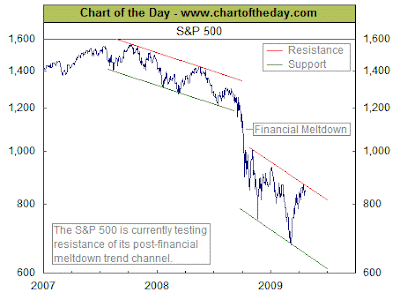Tax HavensThe G20, hailed as a success, was nothing more than a political gathering aiming at communication (see post "
G20 summit and today's markets" April 2), the most for the French President, Nicolas Sarkozy, who threatened to walk away if he did not get what he wanted: tax havens MUST be scrapped since Sarkozy, in October 2008, identified them as one of the two causes of the financial crisis...
Here we are. The OECD published on April 2 a
list of non or not co-operative enough countries or supposed to be. Funny enough, Uruguay, Malaysia and Philippines were on the black list: didn’t you know that these countries were tax havens? (they were moved, together with Costa Rica from the black list to the grey list on 7 April). Didn’t you also know that Hong Kong, Mauritius, Dubaï, Saint Barthelemy in the French West Indies or Delaware in the US to name a few were not tax haven?
Funny enough, the OECD makes a distinction between tax havens and other financial centers: are they tackling tax havens or something else? We will see this later on.
In any case, the credibility of the OECD has zoomed down to zero!
Remember, the fight against tax havens took a boost after 9/11; it was aiming at fighting more efficiently Al Qaieda and money laundering from crime in general.
Let’s go back to 1998 when the
criteria where laid down by the OECD to pinpoint a tax haven. There are three criteria (the absence of a requirement that the activity be substantial was abandoned by the OECD in 2001):
1.
No or only nominal taxes. Tax havens offer themselves, or are perceived to offer themselves, as a place to be used by non-residents to escape high taxes in their country of residence
2.
Protection of personal financial information. This prevents the transmittance of information about taxpayers who are benefiting from the low tax jurisdiction.
3.
Lack of transparency where one country can make it difficult, if not impossible, for other tax authorities to apply their laws effectively
In the next article you will discover how politics melted in.









